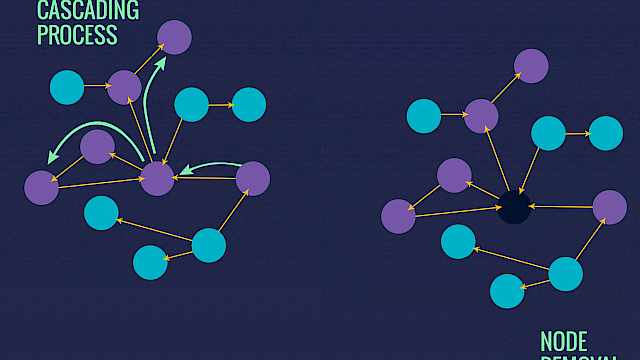When everything else can be tense, energy-consuming and potentially dangerous, the last thing you want to spend your time on is conflict management. Why? Because it removes focus from important tasks, and the circumstances simultaneously worsen for those involved when you can’t escape the situation.
In a confined and isolated environment, the situation could prove highly detrimental to the effectiveness of a team, potentially resulting in fault lines within the team if members choose sides. In principle, the same mechanisms are at stake in every work setting, but the difference in extreme environments is that people often cannot escape the situation and therefore are subject to what we call the ‘pressure cooker effect’: small details may grow out of all proportion.
In dealing with a conflict situation, the best solution may simply be to try to avoid it. However, when people are together in isolated, confined or even hostile environments over an intensive and extended period, eventually conflicts will occur. Therefore, it is of utmost importance to be able to manage conflicts as smoothly as possible when they happen, in order to focus on what is important: getting the job done.
Whilst people working in extreme environments have often had extensive training prior to the actual operational phase, we have found that frequently the topic of conflict management is neglected or down-played. This is primarily due to two reasons:
- Leaders or those in charge of high-performance teams simply expect members to be able to solve conflicts because they are highly selected individuals and it is assumed to be a skill that ‘just follows’
- Or, the topic is considered too ‘soft’ and not as important as other more technical learning skills.
One of the first steps to resolving conflicts is to understand the culture of the team and their view on conflicts. This should be done openly. In some teams, conflicts are seen as a natural part of planning and task-solving, while other teams view conflicts as disruptive events. One approach is not necessarily better than the other, but the team should be aware of which culture they possess, as the two extremes can offer different advantages and disadvantages.
Seeing conflicts as part of planning and task-solving could result in unnecessary energy being spent on discussing participants' different views on a situation, although it may on the other hand also provide a better, more diverse and useful task solution. In teams where visible conflicts are not highly evident, there may be more so-called 'silent conflicts' in which conflicts are not addressed and dealt with. Here, an effective conflict resolution is characterised by a sensible result achieved in an efficient manner and with the preservation of good, lasting relationships.
Our research within Danish special forces and other high-performance sports teams provides examples of actions that can be taken prior to conflict escalation.
Sometimes conflicts can be turning points providing the potential for learning points if people are able to handle it in a constructive way.
Furthermore, deciding when to ignore an issue or when to address the particular disagreement is a key aspect of conflict management that requires specific training prior to assignment in an extreme environment.
Our research suggests that it is effective to articulate ‘game rules’ prior to deployment: to create and have a common language about conflicts and a fixed framework for how and when to deal with them, which in the end makes it easier to achieve positive outcomes when on assignment.
To help prepare, participants could ask themselves and each other questions such as; What is a conflict? What do we do when we become unclear about something? How do I usually respond to conflict situations when I'm under pressure? How would I like to be met in a conflict? The personalities of individual participants have an impact on how a situation is interpreted and hence affect the action taken, which should also be a part of the discussion.
Personal feelings can easily interfere with professional conversations and when that happens people will easily get in a defensive position where it is difficult to maintain professional views. Strong attitudes create oppositional situations and increase the likelihood of conflicts. The importance of appropriate communications on team effectiveness, therefore, includes conversations prior to assignments about expectations for the upcoming task, specific preferences for actions, together with an understanding of personal goals and ambitions in order to get the team to function smoothly.
Knowledge and reflection about individuals' personal conflict management styles can help self-awareness about decisions, including when to confront or back-off. Another way to prevent conflicts is to run through possible scenarios before deployment. Putting thought into likely issues derived from the specific context can help to prepare individuals better and hopefully give them more tools for dealing with situation-specific conflicts.
It is crucial that these discussions occur not once but as part of a continuous and ongoing dialogue within the team.
Read more
- Jesper Corneliussen, Gloria R. Leon, Anders Kjærgaard, Birgit A. Fink, and Noah C. Venables. 2017. ‘Individual Traits, Personal Values, and Conflict Resolution in an Isolated, Confined, Extreme Environment’. Aerospace Medicine and Human Performance 88 (6): 535–43. Available at: https://doi.org/10.3357/AMHP.4785.2017.
- Anders Kjærgaard, Gloria R. Leon, and Birgit A. Fink. 2015. ‘Personal Challenges, Communication Processes, and Team Effectiveness in Military Special Patrol Teams Operating in a Polar Environment’. Environment and Behavior 47 (6): 644–66. Available at: https://doi.org/10.1177/0013916513512834.
Copyright Information
As part of CREST’s commitment to open access research, this text is available under a Creative Commons BY-NC-SA 4.0 licence. Please refer to our Copyright page for full details.






